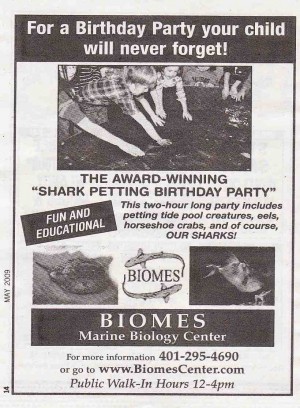Animals
Fly Air Weird!
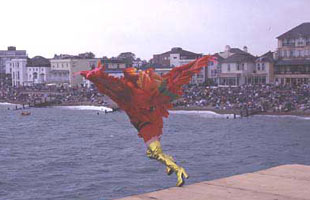
Clearly this is an idea who's time has come, as Air Canada has also announced this week that it is to carry pets on its planes, as long as they board as hand-luggage. From July, passengers will be able to book the space under their seats as stowage for up to 4 pets in ‘leakproof carriers’, let’s hope no-one thinks that means Tupperware (Telegraph).
And when airlines are not treating pets as luggage, they’re usually treating their customers as cattle. Ryanair, for example, this week announced plans to have the passengers load their own luggage, saving the company an estimated 20 million euros (Belfast Telegraph).
A worse fate greeted passengers on a Thomas Cook charter plane recently when due to a mechanical failure only the front hold could be loaded with baggage, hence passengers were asked to move to the back of plane as ballast, to balance it out. After seeing people disembarking from the service’s previous flight kissing the ground and putting their hands together in prayer, 71 refused and made other travel arrangements (Daily Mail).
Finally, if you think the customers have it bad, spare a thought for the staff of British Airways, which once billed itself as "the World's favorite airline". Times are now so hard for the company it has asked its workforce if they'd mind taking a pay-cut or even working for free for a month, just to tide the company over. BA's chief executive has lead the drive, promising to lead by example and forgo one month of his £735k ($1.2m) salary (Guardian).
(Picture from The Bognor Birdman Event, a semi-serious competition to fly 100 meters from the end of a seaside pier.)
Posted By: Dumbfounded - Wed Jun 24, 2009 -
Comments (1)
Category: Animals, Business, Flight, Pets
Whale blows bubble rings—like smoke rings
I know some people who can blow smoke rings, but I don't know if this is the same technique.The whales also play "trade the ball" and one is instructed to do circle spins. These japanese whales are seriously smart. Watch until the end and the whales wave goodbye.
Free room and board, a chance to perform, maybe I have chosen to be the wrong species. But I don't know if I could do the tricks!!
Posted By: gdanea - Sat Jun 20, 2009 -
Comments (1)
Category: Animals
Strange Russian Creature
I have no idea what this is, but I never want to meet one in the water.Kinda looks like a trilobite to me -- but aren't they extinct?
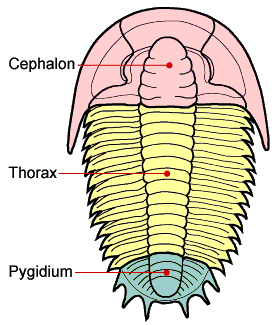
Also kind of looks like a horseshoe crab?
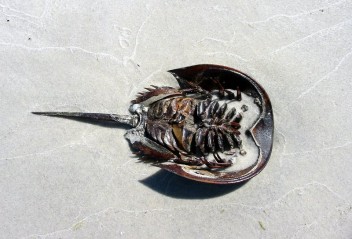
Perhaps those who know what this is could enlighten the rest of us?
Posted By: gdanea - Thu Jun 18, 2009 -
Comments (5)
Category: Animals
Woman in an Ape Suit
It takes a lot of confidence in your sexy image to start your number in an ape suit.
Posted By: Paul - Sat Jun 13, 2009 -
Comments (1)
Category: Animals, Celebrities, Movies, Sex Symbols, 1930s
If You Have A Weak Stomach, Don’t Look
It's amazing what food sellers will put into a can these days. What's even more amazing is that people will buy it. I am reminded of a quotation from a children's movie, where one of the kids asks another, "What wouldn't you eat for a million dollars?" I think just about everything in this article from the Food Network would make that list. (And what's with the Russian Herring? Do they really have teeth like that? Were these grown in a body of water near Chernobyl?)
Posted By: Nethie - Tue Jun 09, 2009 -
Comments (6)
Category: Animals, Food, Horror, Insects and Spiders, Nature, More Things To Worry About
It Just Ain’t Unnatural!

But if we learnt war early on the path to humanity, we may have learnt laughter even earlier. Researchers from the University of Portsmouth analysed the sounds 22 young apes made when being tickled, and concluded that it is laughter. Dr Davila-Ross and her team looked for similar acoustic characteristics to human laughter in the young of several ape species, and found greater similarity in the sounds made by chimpanzees and bonobos (the species closest to humans genetically) than in that of more distantly related apes such as orangutans. The team concluded that laughter must have evolved some time before the major ape groups split apart, 18 million years ago (BBC News).
Finally, this last piece was going to be about gay penguin adoption, but that's already up, so instead I'd like to draw your attention to a
(Image from SPEC Productions, who collect and reprint some damn fine comics!)
Posted By: Dumbfounded - Mon Jun 08, 2009 -
Comments (2)
Category: Animals, Ethnic Groupings, Sexuality, War, Anthropology, Archaeology
It Just Ain’t Natural!
Here's a quick round-up of a few things that I couldn't quite crow-bar into the "Weird Wildlife" category.If you've any particular aversion to rats, and quite a lot of people have, then Deshnok in India is probably a place best avoided, for there stands the Karni Mata Temple, built a century ago and devoted to the Hindu matriarch Karni Mata. Worshipped as a 14th century incarnation of the goddess Durga, Karni Mata is said to have struck a deal with Yama, the god of death, that all members of her clan would reincarnate as rats so that the clan would remain united. Hence rats in Deshnok are sacred animals, venerated as ancestors, and fed and protected by the locals, so than now thousands of rats scamper over the feet of visitors to the temple (National Geographic).
And it's not only in India that people have built havens for rats, one was once built in British Columbia, though for quite a different reason. Bruce Alexander was studying addiction, and he had a problem. He knew that rats kept in cramped cages or strapped to apparatus that allowed them to dose themselves with drugs, would often do so to the point of self-destruction, but, he thought, could you really blame them? What if the addiction to the drugs was a product of their environment, rather than a reaction to the drug itself? Hence, in the 1970s, Alexander decided to give his rats the best living conditions he could, so he build "Rat Park". It was 95 square-feet in area, and well stocked with food, toys and "private areas" where the rats - who would be of both sexes - could go to mate or give birth. It was then filled with rats who had been forced to consume morphine for 8 weeks prior to the experiment, quite long enough to cause hopeless addiction in standard experiments, who were now offered a choice of pure water, or more morphine. All of them chose water. Nothing Alexander could do would entice them to take the drug, even sweetening it had no effect, only when he added naloxone (a drug that blocks the action of opiates) or diluted the morphine to the point of near impotency, could park rats be tempted to take it (Absolute Astronomy).
Yet another piece of rodent research now, as scientists (sadly not from NIMH) have found that transplanting a human 'language gene' into mice affects the way they communicate with one another. The gene, called foxp2 is one of a small family of genes known to be markedly different in humans compared to apes and other animals, hence may be the genes that are the very core of our humanity, so would putting a humanized gene in a mouse create a talking mouse? Well, no, there's a lot more to our use of language than a single gene, however while the transgenic mice were significantly less curious, they also showed increased growth and plasticity in the speech centres of their brains, and a tendency to use a greater range of frequencies in their calls (NY Times).
More in extended >>
Posted By: Dumbfounded - Sun Jun 07, 2009 -
Comments (1)
Category: Animals, Languages, Nature, Experiments
Shark Petting
If you're ever in New England and wish to dispose of an unwanted rugrat, consider visiting the Biomes marine education facility here in Rhode Island, and participating in one of their "shark petting" programs.Shark petting? Shark feeding!
Posted By: Paul - Sat Jun 06, 2009 -
Comments (0)
Category: Animals, Death, Museums, Nature, Children
Weird Wildlife
It's a law of nature that when you've got to go, you've got to go. So if you happen to be a penguin out on the antarctic ice, well, that's where you've got to go. Which turns out to be an extremely useful fact for scientists, who have used piles of penguin poo identified on satellite images to locate where penguin colonies form. Researchers from the British Antarctic Survey hope to use the new technique to follow the penguins over many seasons and determine how much impact global warming is having on the species (Telegraph).Meanwhile British beekeepers must be cursing that not all animals can be tracked by satellite so easily after an outbreak of bee-rustling has swept the coutryside. The spate of thefts has been provoked by rises in the price of honey combined with a shortage of bees brought about by disease. In the largest bee-heist so far, 18 hives containing over a million bees were stolen from a strawberry field they had been pollinating. According to John Howat of the Bee Farmers Association, pulling off such an audacious crime would require "inside knowledge" (BBC News).
And it's not just beekeepers who are missing their wildlife. A UK radio station that has broadcast nothing but a repeating loop of birdsong for 18 months as "filler" has finally shut down to make way for a new commercial station, and raised howls of protest from many of its half a million regular listeners. The twenty year-old recording, made in a wiltshire garden and used by the radio station free-of-charge, became a massive hit with people from all over Britain, including author Terry Pratchett, who found it a relaxing alternative to the usual radio fare. The replacement broadcast, Amazing Radio, plays music by unsigned bands uploaded to amazingtunes.com (Pocket Lint).
Finally, here's one story that almost missed the boat (ark?), swimming with stingrays may be harmful... for the stingrays. Scientists monitoring the sealife around the Camen islands have found that tourist excursions to pet the wildlife around the islands is leading to weaker immune systems and poorer health in the animals. Christina Semeniuk, an ecologist at Simon Fraser University in Canada, cited collisions with boats, overcrowding and hand-fed squid forming an greater part of their diet as the main suspects. She pointed to other studies on bears, penguins, dolphins, and apes which also showed increased stress and illness due to wildlife tourism (Guardian).
Posted By: Dumbfounded - Tue Jun 02, 2009 -
Comments (7)
Category: Agriculture, Animals, Crime, Science
The Missing Link
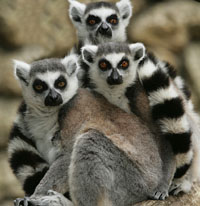
Now I don't generally have a problem with thinking that my great, great, great (many greats) ancestors were apes. Especially judging by some of the men I've dated. But lemurs? Did any of you see the movie, Madagascar?
Posted By: Nethie - Tue Jun 02, 2009 -
Comments (13)
Category: Animals, History, Science, More Things To Worry About

| Who We Are |
|---|
| Alex Boese Alex is the creator and curator of the Museum of Hoaxes. He's also the author of various weird, non-fiction, science-themed books such as Elephants on Acid and Psychedelic Apes. Paul Di Filippo Paul has been paid to put weird ideas into fictional form for over thirty years, in his career as a noted science fiction writer. He has recently begun blogging on many curious topics with three fellow writers at The Inferior 4+1. Contact Us |

